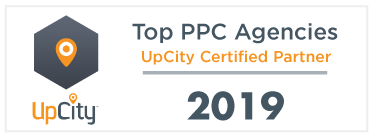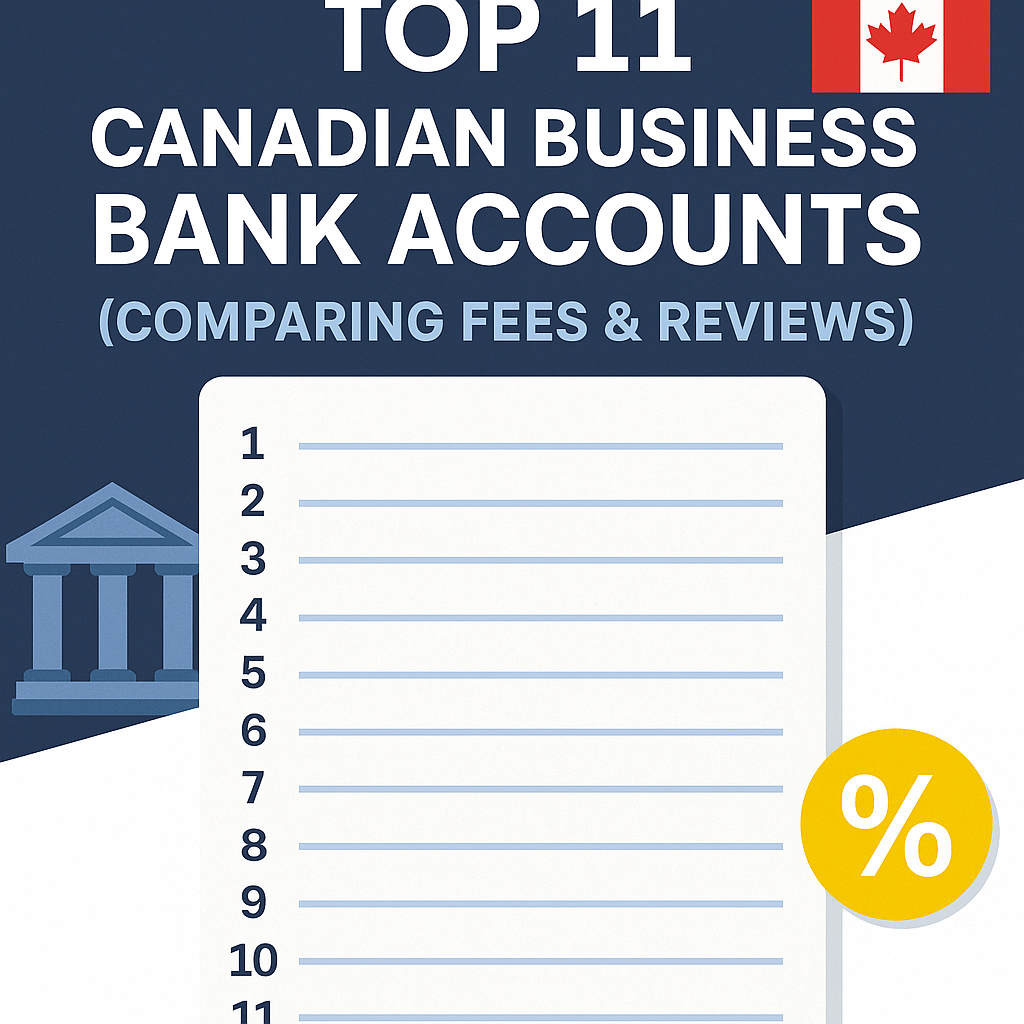GOOGLE ADS MANAGEMENT
ALL SERVICES- GRAPHIC DESIGN & BRANDING
➥ WEBSITE DESIGN TORONTO
➥ TORONTO LOGO DESIGN
➥ BROCHURE GRAPHIC DESIGN
➥ INFOGRAPHIC DESIGN
➥ BUSINESS CARD DESIGN
➥ PACKAGE DESIGN TORONTO
➥ ILLUSTRATION DESIGN
➥ ADVERTISING POSTER DESIGN
➥ BRANDING STRATEGY & SERVICES- ➤ VIEW ALL SERVICES
WEB DEVELOPMENT & SUPPORT
➥ CUSTOM WEB DESIGN TORONTO
➥ ECOMMERCE WEBSITE DESIGN TORONTO
➥ WEBSITE MAINTENANCE SERVICES
➥ SHOPIFY WEBSITE DESIGN
➥ SHOPIFY EXPERTS TORONTO
➥ WORDPRESS DEVELOPMENT
➥ WORDPRESS MAINTENANCE- ➤ VIEW ALL SERVICES
WEBSITE MARKETING & CONTENT
➥ SEO PACKAGES TORONTO
➥ TORONTO SOCIAL MEDIA AGENCY
➥ CONTENT MARKETING TORONTO
➥ PPC MANAGEMENT TORONTO
➥ AFFILIATE MARKETING CANADA
➥ STRATEGIC CONSULTATION- ➤ VIEW ALL SERVICES
ABOUT
RESOURCES- LET’S CHAT
Questions? Call us at
647-348-4995

GOOGLE ADS MANAGEMENT
ALL SERVICES- GRAPHIC DESIGN & BRANDING
➥ WEBSITE DESIGN TORONTO
➥ TORONTO LOGO DESIGN
➥ BROCHURE GRAPHIC DESIGN
➥ INFOGRAPHIC DESIGN
➥ BUSINESS CARD DESIGN
➥ PACKAGE DESIGN TORONTO
➥ ILLUSTRATION DESIGN
➥ ADVERTISING POSTER DESIGN
➥ BRANDING STRATEGY & SERVICES- ➤ VIEW ALL SERVICES
WEB DEVELOPMENT & SUPPORT
➥ CUSTOM WEB DESIGN TORONTO
➥ ECOMMERCE WEBSITE DESIGN TORONTO
➥ WEBSITE MAINTENANCE SERVICES
➥ SHOPIFY WEBSITE DESIGN
➥ SHOPIFY EXPERTS TORONTO
➥ WORDPRESS DEVELOPMENT
➥ WORDPRESS MAINTENANCE- ➤ VIEW ALL SERVICES
WEBSITE MARKETING & CONTENT
➥ SEO PACKAGES TORONTO
➥ TORONTO SOCIAL MEDIA AGENCY
➥ CONTENT MARKETING TORONTO
➥ PPC MANAGEMENT TORONTO
➥ AFFILIATE MARKETING CANADA
➥ STRATEGIC CONSULTATION- ➤ VIEW ALL SERVICES
ABOUT
RESOURCES- LET’S CHAT
Questions? Call us at
647-348-4995

GOOGLE ADS MANAGEMENT
ALL SERVICES- GRAPHIC DESIGN & BRANDING
➥ WEBSITE DESIGN TORONTO
➥ TORONTO LOGO DESIGN
➥ BROCHURE GRAPHIC DESIGN
➥ INFOGRAPHIC DESIGN
➥ BUSINESS CARD DESIGN
➥ PACKAGE DESIGN TORONTO
➥ ILLUSTRATION DESIGN
➥ ADVERTISING POSTER DESIGN
➥ BRANDING STRATEGY & SERVICES- ➤ VIEW ALL SERVICES
WEB DEVELOPMENT & SUPPORT
➥ CUSTOM WEB DESIGN TORONTO
➥ ECOMMERCE WEBSITE DESIGN TORONTO
➥ WEBSITE MAINTENANCE SERVICES
➥ SHOPIFY WEBSITE DESIGN
➥ SHOPIFY EXPERTS TORONTO
➥ WORDPRESS DEVELOPMENT
➥ WORDPRESS MAINTENANCE- ➤ VIEW ALL SERVICES
WEBSITE MARKETING & CONTENT
➥ SEO PACKAGES TORONTO
➥ TORONTO SOCIAL MEDIA AGENCY
➥ CONTENT MARKETING TORONTO
➥ PPC MANAGEMENT TORONTO
➥ AFFILIATE MARKETING CANADA
➥ STRATEGIC CONSULTATION- ➤ VIEW ALL SERVICES
ABOUT
RESOURCES- LET’S CHAT
Questions? Call us at
647-348-4995

GOOGLE ADS MANAGEMENT
ALL SERVICES- GRAPHIC DESIGN & BRANDING
➥ WEBSITE DESIGN TORONTO
➥ TORONTO LOGO DESIGN
➥ BROCHURE GRAPHIC DESIGN
➥ INFOGRAPHIC DESIGN
➥ BUSINESS CARD DESIGN
➥ PACKAGE DESIGN TORONTO
➥ ILLUSTRATION DESIGN
➥ ADVERTISING POSTER DESIGN
➥ BRANDING STRATEGY & SERVICES- ➤ VIEW ALL SERVICES
WEB DEVELOPMENT & SUPPORT
➥ CUSTOM WEB DESIGN TORONTO
➥ ECOMMERCE WEBSITE DESIGN TORONTO
➥ WEBSITE MAINTENANCE SERVICES
➥ SHOPIFY WEBSITE DESIGN
➥ SHOPIFY EXPERTS TORONTO
➥ WORDPRESS DEVELOPMENT
➥ WORDPRESS MAINTENANCE- ➤ VIEW ALL SERVICES
WEBSITE MARKETING & CONTENT
➥ SEO PACKAGES TORONTO
➥ TORONTO SOCIAL MEDIA AGENCY
➥ CONTENT MARKETING TORONTO
➥ PPC MANAGEMENT TORONTO
➥ AFFILIATE MARKETING CANADA
➥ STRATEGIC CONSULTATION- ➤ VIEW ALL SERVICES
ABOUT
RESOURCES- LET’S CHAT
Questions? Call us at
647-348-4995
![]()
![]()
![]()

- November 28, 2024
-
 Amine Rahal
Amine Rahal
If you’re looking for a business for sale in Toronto, Ottawa, Mississauga, Hamilton, Brampton or anywhere else in Ontario, you’re at the right place. Here are some of my favourite places to find businesses to buy:
Realtor.ca
Realtor is one of the best sources to find retail businesses for sale in Toronto or Ontario in general, as that’s where they first pop in once they hit the MLS. However, keep in mind that this is only for retail stores or businesses with a physical location, such as gyms, restaurants, dental clinics or other.
Contact Your Local BIA or Business District
Contacting or physically visiting commercial areas and business districts in Ontario can allow you to spot businesses with “For Sale” signs. You can contact the Ontario BIA, which controls all the different BIA’s across the province and the different districts of Toronto.
Popular Online Business Marketplaces
Platforms like BizBuySell, BusinessesForSale, Kijiji and BizQuest are dedicated to listing businesses for sale. You can search by location (in this case, Ontario) and various industry categories. These platforms often provide detailed information about the businesses, financials, and contact details for sellers or brokers. Flippa and Empire Flippers are also great sources to find online businesses for sale, such as e-commerce or dropshipping stores.
Commercial Real Estate Websites
Websites like LoopNet and CommercialCafe primarily focus on commercial properties, including retail spaces, office buildings, and industrial properties. Sometimes, these listings may include businesses with physical locations. You can narrow down your search by specifying “businesses for sale” or “business properties.
Local Business Brokerages
Business brokerages specialize in assisting with the sale of businesses. Research brokerages that operate in Ontario and have a good reputation. Contact them to express your interest and provide them with your criteria. They can connect you with businesses that match your preferences.
Industry Associations and Chambers of Commerce
Check the websites of industry associations and local chambers of commerce in Ontario. They often have business directories or resources sections where businesses for sale might be listed. Reach out to these organizations and inquire about any available opportunities.
Online Classifieds and Classified Ad Websites
Websites like Kijiji and Craigslist have sections for businesses for sale. However, exercise caution and thoroughly vet any opportunities you find, as listings on these platforms might not always be verified or regulated.
Networking and Referrals
Attend industry events, conferences, and local business networking groups in Ontario. Networking can provide you with insights and potential leads on businesses that are looking to be sold. Leverage your professional connections and ask for referrals.
Business Publications
Local business newspapers, magazines, and online publications often feature advertisements or articles about businesses for sale. Keep an eye out for classified sections or business-related features that highlight opportunities.
Online Search Engines
Use search engines like Google to search for specific keywords related to businesses for sale in Ontario. You might come across listings on various websites, blogs, or forums. For example, if you are looking for a restaurant for sale, type a query like “restaurant for sale in Ontario” and see what comes up. You can filter the results by date, to show only the ones that came up in the last month for instance, if you want to get the most up-to-date results.
Social Media Groups and Forums
Join business-related groups and forums on platforms like LinkedIn, Facebook, and Reddit. Participate in discussions and ask for recommendations on businesses for sale. Members might share their own listings or refer you to potential opportunities.
Contact Business Brokers and Intermediaries
Reach out to business brokers and intermediaries directly. They have insights into businesses that are currently on the market and can provide you with information about available opportunities that match your criteria.
Local Government Resources
Check with local economic development agencies, small business centers, or government websites. Some municipalities provide resources for businesses looking to sell or transition ownership. They might offer listings or information about business opportunities.
Remember: it’s important to conduct thorough due diligence, including financial analysis, background checks, and legal reviews, when exploring any potential business opportunity. Consulting with professionals such as business advisors, attorneys, and accountants is highly recommended before making any purchase decision.
Tips to Find The Right Business to Buy in Ontario
Here are some tips to help you navigate the process and increase your chances of finding a suitable business to buy in Toronto or Ontario:
- Define Your Criteria: Determine the type of business you’re interested in, your budget, industry preferences, and your desired location within Toronto or anywhere else in Ontario. Having clear criteria will help you narrow down your search. For instance, buying a physical retail store isn’t the same as buying an online store.
- Work with Professionals: Consider working with a business broker or advisor who specializes in helping buyers find businesses. They have access to a wide range of listings and can guide you through the entire process.
- Research Thoroughly: Once you find a potential business, conduct thorough research. Review financial statements, business history, customer reviews, and any legal or regulatory issues.
- Understand the Industry: Familiarize yourself with the industry the business operates in. Research market trends, competition, and growth prospects to assess the business’s long-term viability.
- Visit the Business: If possible, visit the business in person to get a feel for its operations, location, and overall condition. This can help you assess its potential and identify any red flags.
- Speak with the Owner: Have a conversation with the current owner to understand their reasons for selling, the business’s challenges and opportunities, and any transition assistance they might offer.
- Seek Professional Advice: Consult with professionals such as attorneys and accountants to review legal documents, contracts, and financial statements. They can help you avoid potential pitfalls.
- Check Financials: Review the business’s financial records, including income statements, balance sheets, and tax returns. Ensure that the business’s financials are accurate and transparent.
- Consider Your Skills: Assess how your skills and experience align with the business’s operations. Your expertise can be a valuable asset in running the business effectively.
- Assess Competition: Evaluate the competitive landscape in the area and industry. Understand how the business differentiates itself and its potential for growth.
- Due Diligence: Conduct thorough due diligence to uncover any hidden liabilities, legal issues, or outstanding debts associated with the business.
- Future Growth Potential: Consider the business’s potential for growth and expansion. Are there opportunities to increase revenue or improve operations?
- Evaluate Location: Location can significantly impact the success of a business. Assess the area’s demographics, foot traffic, accessibility, and overall business environment.
- Meet with Key Employees: If the business has key employees, consider meeting with them to understand their role, experience, and commitment to the business.
- Trust Your Instincts: While data and analysis are crucial, also trust your instincts. If something doesn’t feel right, it’s important to investigate further or consider other options.
- Negotiate Wisely: Negotiate terms and price with the seller based on your findings. Be prepared to walk away if the terms aren’t favorable.
- Plan for Transition: If you decide to purchase the business, develop a transition plan that outlines how you’ll manage the business after the sale is complete.
Remember that buying a business is a significant decision with long-term implications. Take your time, gather as much information as possible, and seek advice from professionals. The right business for you should align with your goals, skills, and financial capacity while offering growth potential and a solid foundation for success.
FAQ
1. What types of businesses are commonly available for sale in Ontario?
Depending on the city, you can find businesses to buy in various industries, such as:
- Retail (e.g., clothing stores, grocery stores)
- Food and hospitality (e.g., restaurants, cafes, franchises)
- Service industries (e.g., cleaning, landscaping, childcare)
- E-commerce and online businesses
- Manufacturing and industrial businesses
- Health and wellness (e.g., gyms, clinics)
- Transportation and logistics (e.g., trucking companies)
2. How do I assess the value of a business before buying?
It’s best to speak to an expert about this, but key steps to evaluate a business’s value include:
- Reviewing financial statements and tax records.
- Assessing assets (inventory, equipment, property).
- Considering goodwill and customer base.
- Understanding liabilities and debts.
- Analyzing cash flow and profit margins.
- Consulting a professional appraiser or accountant.
3. What are some key factors to consider before purchasing a business?
Important considerations include:
- Location: Proximity to customers and suppliers.
- Market Potential: Growth opportunities and industry trends.
- Competition: Understanding the local market.
- Operational Requirements: Skills, time commitment, and licensing needs.
- Reason for Sale: Why is the owner selling the business?
4. Do I need a business broker to purchase a business?
While not mandatory, a broker can help you in these aspects:
- Provide access to exclusive listings.
- Negotiate on your behalf.
- Guide you through legal and financial complexities.
- Save time by pre-screening businesses.
5. Are there financing options available for buying a business?
Yes, if you don’t have the cash upfront, financing options you can consider include:
- Bank & Traditional Loans (including alternative lenders): You can consider checking with any of the top five banks or though traditional business loans in Ontario. Also check the Canada Small Business Financing Program (CSBFP) and if there are grants available.
- Seller Financing: The seller may allow you to pay in installments.
- Investors or Partnerships: Bringing in external funding.
- Personal Savings or Lines of Credit. Look into specific types of financing, as some options differ based on whether you have a good or bad credit.
6. How can I find franchise opportunities in Ontario?
Franchise opportunities can be found through:
- Dedicated franchise directories like FranchiseDirect or FranchiseCanada.
- Company websites of major franchises (e.g., Subway, Tim Hortons).
- Franchise expos or industry events.
7. What regions in Ontario are best for finding businesses for sale?
Popular regions include:
- Toronto: Diverse business opportunities in retail, tech, and services.
- Ottawa: Stable economy with government and tech sectors.
- Hamilton: Manufacturing and industrial opportunities.
- Brampton and Mississauga: Retail and logistics hubs.
Need Help with Marketing Your New Business?
At Little Dragon Media, we have helped hundreds of businesses in Ontario and beyond improve their online traffic and sales through cutting-edge strategies like Google Ads Management, SEO and UX Design. Contact us today if you need a strong marketing partner for your newly acquired business.

Tech Entrepreneur, Author, and CEO of Little Dragon Media. Passionate about entrepreneurship, philanthropy, digital marketing, blockchain, finance, investing, health fitness & nonprofits.
RECENT POSTS
- Top 11 Canadian Business Bank Accounts (Comparing Fees & Reviews)
- PolicyMe – Legit Canadian Insurance Policy? Let’s Review…
- 10 Small Business Loans & Financing Options in Ontario
- Top 8 Small Business Insurance Providers in Canada (2025)
- SCAM ALERT: How a Fake Google Ads Inquiry Nearly Got Us (And How to Protect Yourself)

Ready to chat about how Little Dragon Media can enhance your business?
Call us now at 647-348-4995 or

OUR AWARDS & CERTIFICATIONS






WHAT OUR CLIENTS ARE SAYING



Little Dragon Media's professionalism and commitment to delivering excellence are truly commendable. I highly recommend their services... Thank you for your stellar work!
- Delna Bharucha

Little Dragon Media worked on developing our logo and website. They did an absolutely AMAZING job on both projects. These guys ROCK and you won't be disappointed.
- Sonia Nutt

My team had a great experience working with Little Dragon Media. We will certainly engage with Little Dragon Media for any additional projects in the future. Highly recommend!
- Carly Rooney



- 682A St-Clair West Toronto, ON M6C 1B1
- (647)-348-4995
- info@littledragon.ca
MOST POPULAR SERVICES
RECENT POSTS
GET MORE CLIENTS
Don't let your competitors take over. We'll help you climb to the top and get more clients.



- 682A St-Clair West Toronto, ON M6C1B1
- (647)-348-4995
- info@littledragon.ca
MOST POPULAR SERVICES
RECENT POSTS
GET MORE CLIENTS
Don't let your competitors take over. We'll help you climb to the top and get more clients.

Contact | Press Mentions | Privacy Policy | Terms of Service
© 2024 Little Dragon Media. All Rights Reserved.






